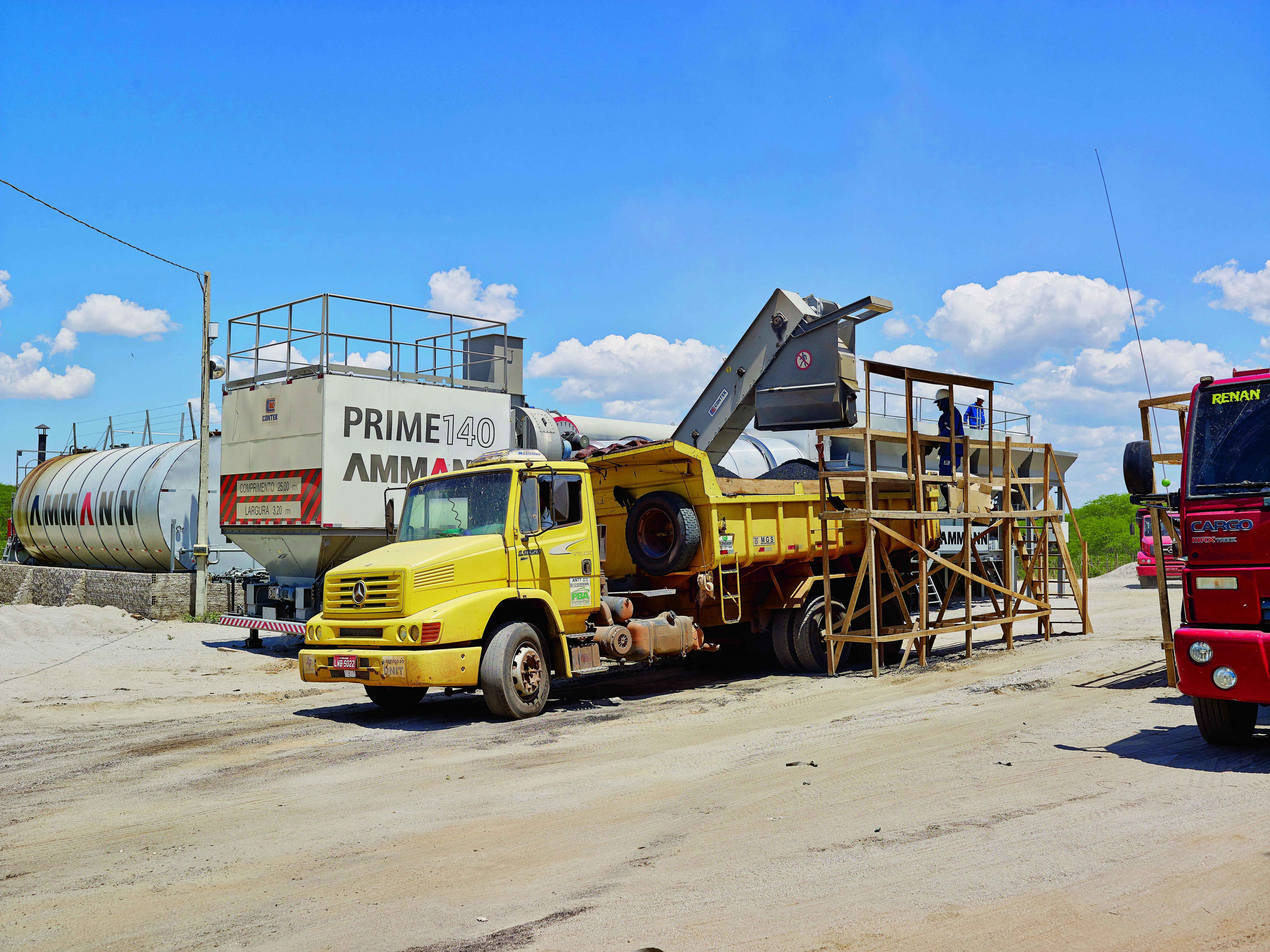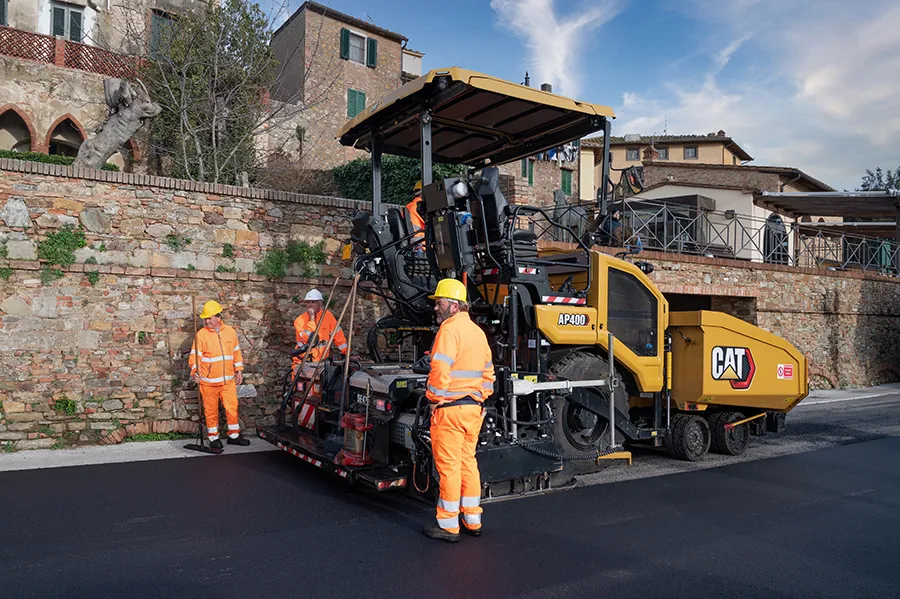The use of a material feeder in a road paving job in South Africa has helped increase productivity and quality on the project
The contractor employed a
Using a material feeder can play an important role in better organisation of paving work and allowing it to proceed without interruption. Using a feeder provides a buffer between the truck supplies and the asphalt pavers, ensuring that the pavers work more continuously and are able to leave a more homogenous mat behind the screed. For this reason, South Africa’s National Roads Agency, SANRAL, requires the use of material feeders for major highway surfacing projects.
When South African contractor Power Construction (Pty) started work on its job to upgrade a 4km stretch of the N14 route near Johannesburg, the firm opted to use one of the Vögele MT 3000-2 Offset PowerFeeders along with a Vögele SUPER 1800-2 paver for the job.
At the job site, scientists from the University of Twente investigated whether the Vögele material feeder improved the quality of the paved binder and surface courses. One of the crucial factors was the temperature of the asphalt immediately after paving. This was measured using two mutually independent systems, one of which was RoadScan, a non-contacting temperature-measurement system from Vögele. To provide a comparison, some sections were also completed without using a material feeder. Material feeders can be used for various reasons, but are primarily selected for the quality and cost-efficiency they deliver. Decoupling the material transfer operation allows the paver to focus on paving while the material feeder transfers mix from the truck. This allows quality and productivity to be increased, while the number of trucks and their waiting times can be reduced. The material feeders buffer paving material, prolonging the window of time for continuous material supply.
On the N14 job site, the aim was to see what impact the use of the Vögele material feeder had on pavement quality.
As an MT 3000-2 Offset PowerFeeder offers a material transport and storage capacity of 43tonnes, trucks carrying 25tonnes of mix can be unloaded within 60 seconds. This allowed paving on the job site to proceed without interruptions, a key factor for pavement quality. Breaks in material supply can trigger a wide range of problems, with the main factor being cooling of the mix and an associated reduction in compactability. Extra downtime is another, but lesser, issue. Problems such as these occurred on sections where the paving work was carried out without a material feeder.
The study by the University of Twente also revealed that the Vögele material feeder contributed to the homogeneity of the mix and improved pavement quality. Inside the machine, conical augers in the receiving hopper ensure a uniform withdrawal of the mix from all areas of the receiving hopper and blending of the colder and warmer material. This reduces temperature fluctuations caused by transport. When combined with a trough-shaped conveyor, the VÖGELE design helps prevent mechanical and thermal segregation.
Another advantage of the Vögele PowerFeeder over conventional paving is its integrated heating system. This features powerful infrared heating with non-contacting panels over the conveyor and counteracts the temperature drop that arises in the transport chain between the mix leaving the mixing plant and being compacted, improving pavement quality. The study also found that the Vögele material feeder allowed a more homogeneous heat distribution in the mat. For the N14 project, the asphalt temperature never fell below 120°C immediately after paving, which left a large window of time for final compaction by HAMM rollers.
Meanwhile the RoadScan system allowed the paving team to monitor the temperature of the mix immediately after paving. The thermoscan images were presented in real time on the paver‘s ErgoPlus console. This system also provided the contractors with detailed information that the work was carried out within the correct temperature range and using GPS data to provide positioning.








